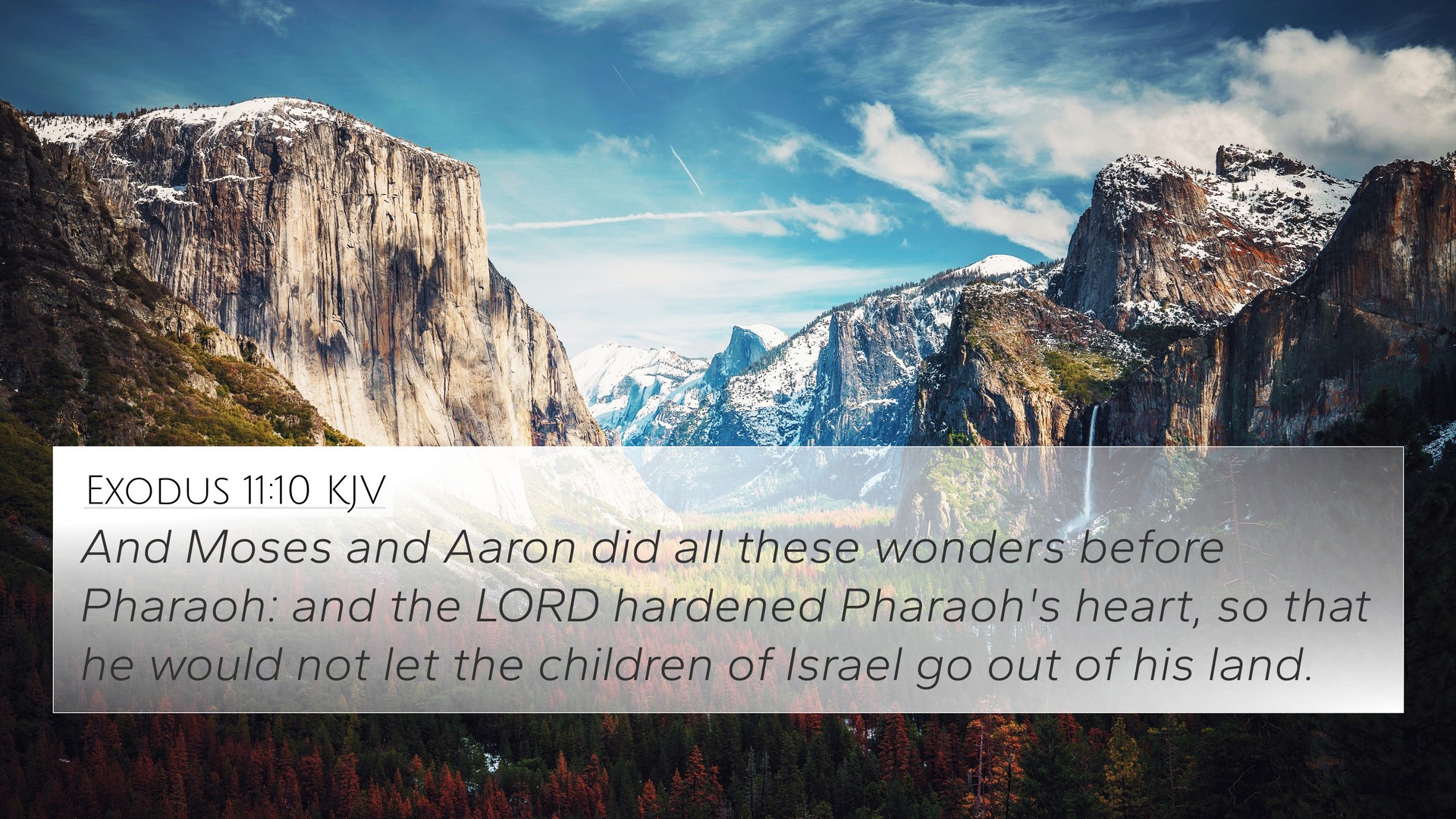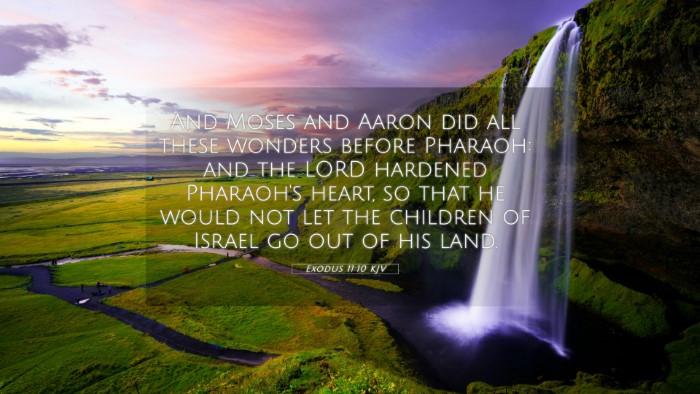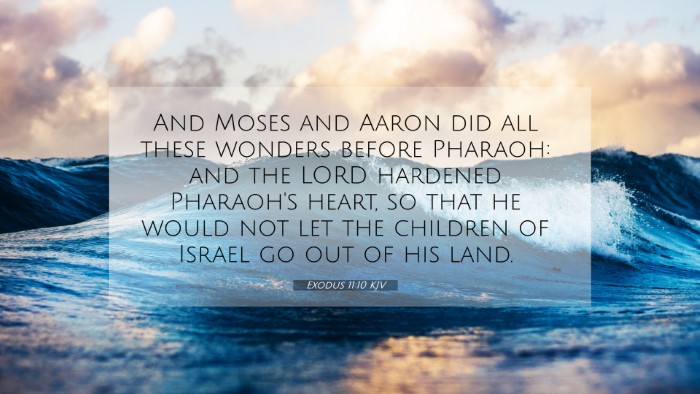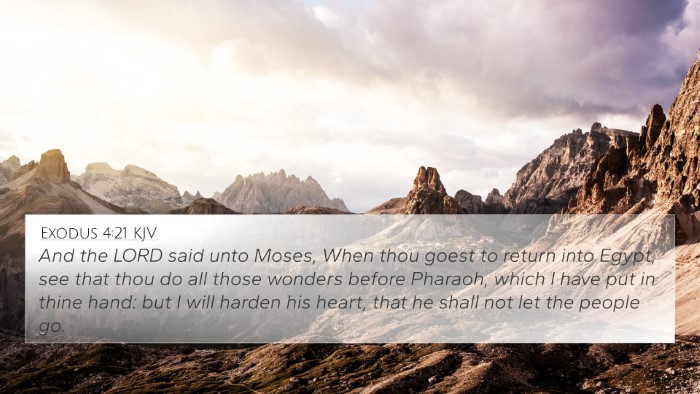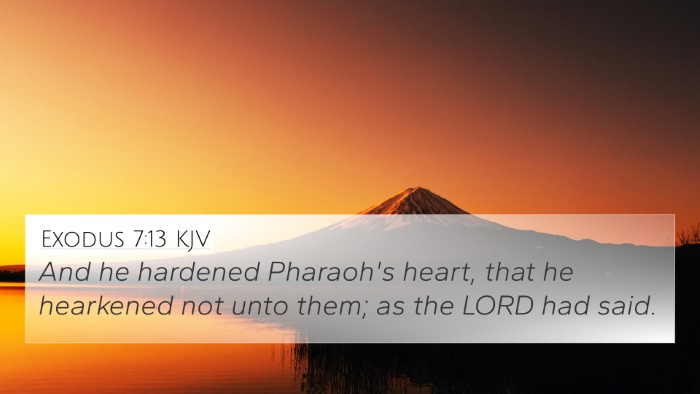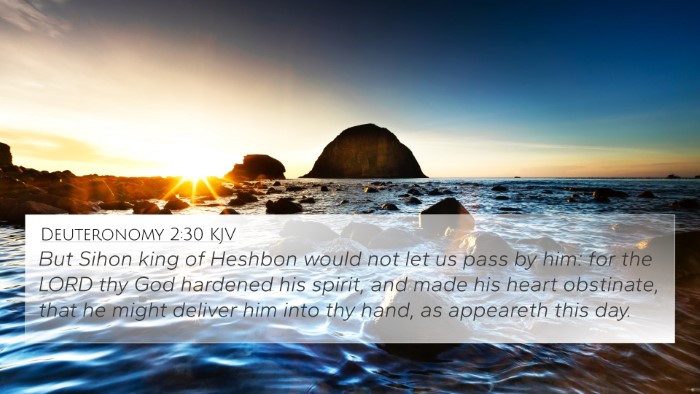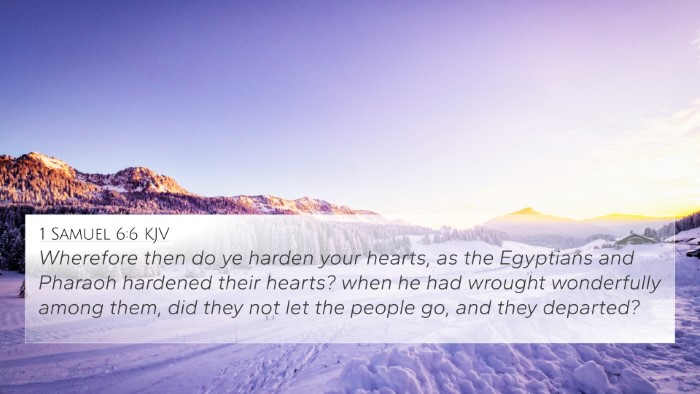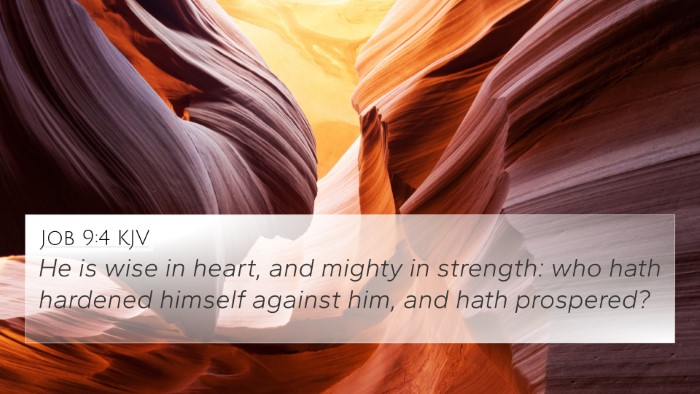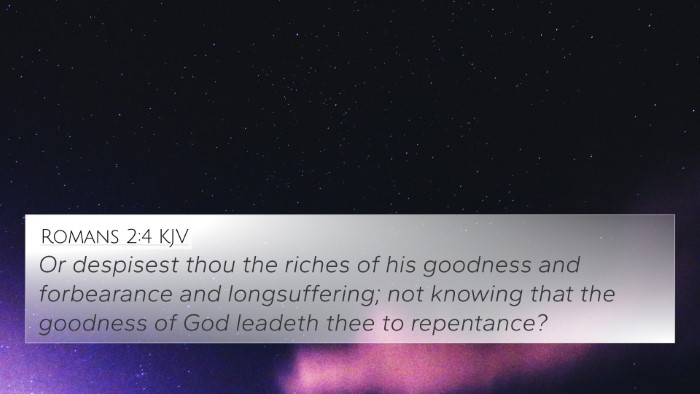Exodus 11:10 - Meaning and Interpretation
Exodus 11:10 states: "And Moses and Aaron did all these wonders before Pharaoh: and the LORD hardened Pharaoh's heart, so that he would not let the children of Israel go out of his land." This verse concludes a significant section of the narrative in Exodus, where God displays His power through wonders and plagues, confronting Pharaoh's obstinacy.
Summary of Insights
The commentary by Matthew Henry emphasizes the divine sovereignty showcased in this verse. He notes that despite the miracles performed, Pharaoh's heart remained hardened, illustrating that God's purposes will prevail regardless of human stubbornness. This divine control over hearts serves not just as a judgment against Pharaoh but as a demonstration of God's might to all nations through Israel's deliverance.
Albert Barnes adds that the phrase "the Lord hardened Pharaoh's heart" suggests an active divine intervention, which is pivotal in understanding God's plan. It reflects a serious theology of retributive justice and mercy, setting a precedent for future biblical events where God intervenes for liberation and judgment.
Adam Clarke offers a deeper examination concerning the implications of God hardening hearts. Clarke provides context by comparing Pharaoh’s situation to instances in the New Testament, such as when Jesus speaks about the hard-heartedness of the Pharisees. He argues that Pharaoh's hardened heart serves a dual purpose; it not only brings about the eventual liberation of Israel but also fulfills God’s promise to His people.
Connections with Other Scriptures
This verse provides strong links and insightful parallels within biblical texts. Here are some relevant cross-references:
- Exodus 7:3 - God foretells His intention to harden Pharaoh's heart as a means to demonstrate His power.
- Romans 9:17 - Paul cites Pharaoh as an example of God raising him up to display His power and glory.
- Hebrews 3:15 - This verse warns against hardening one’s heart, drawing on the historical context of Pharaoh’s disobedience.
- Isaiah 63:17 - The prophet laments God allowing the Israelites to stray, paralleling the hardening of Pharaoh's resolve.
- Proverbs 21:1 - Illustrates the sovereignty of God over rulers' hearts, reinforcing the theme of divine control.
- 1 Samuel 10:9 - Discusses how God changes hearts, contrasting with the hardening seen in Pharaoh.
- 2 Thessalonians 2:11-12 - Speaks of God sending a delusion upon those who refuse to believe, akin to Pharaoh’s hardening.
Thematic Connections
The themes in Exodus 11:10 foster an inter-biblical dialogue regarding God’s sovereignty, the hardening of hearts, and the interplay between divine guidance and human agency. Understanding these motifs can enhance our grasp of biblical narratives and God's interaction with humanity.
Tools for Bible Cross-Referencing
Utilizing resources such as a bible concordance or bible cross-reference guide can facilitate deeper studies. These tools help uncover thematic connections that may not be immediately apparent.
Importance of Cross-Referencing
Engaging in cross-referencing Bible study not only enriches one's understanding of individual verses but also reveals the broader narrative of Scripture. For instance:
- Identifying connections between the Old and New Testaments enhances the theological discourse surrounding salvation history.
- A detailed cross-reference between Gospels can clarify the fulfillment of prophecy, correctly placing Exodus in the larger biblical context.
- Linking passages in the Psalms with New Testament teachings often results in profound insights about faith and redemption.
Conclusion
Exodus 11:10 serves not only as a historical account but also as a theological moment that emphasizes God's dominion over humanity's will. By employing scriptural cross-referencing, one can delve deeper into the meanings and teachings of Scripture. This method of comparative Bible verse analysis guides believers in grasping the unity and purpose of biblical texts, ultimately enriching their faith journey.
